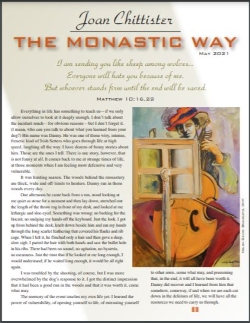The book of life
"When you get what you like in life,” one of our old nuns was fond of
It’s not a theology I’d teach with much gusto today, but I got her point. There are things that look very bad for us–in fact, that are very bad for us–that confuse us and anger us and depress us, but which, in the end, do more for us than sunny days and endless fortune and limitless luck can ever do.
John Lennon put it another way. He said, “Life is what happens to you while you’re busy making other plans.”
And who doesn’t know the truth of that one. You plan to go back to college and the recession comes and there’s no money for that kind of thing anymore. Now what do you do?
Your mother-in-law is babysitting so you can go on working and she gets cancer. Now what happens to the baby?
You’re already beginning to look for the retirement condo in Florida and your spouse dies. There’s no one to retire with anymore. Now what happens to the rest of life?
Indeed, there are no answers at the end of the book of life. No quick fixes. No ways around the tough parts. Instead, life is what we learn as we live it. And what we learn as we live it, is what tests and shapes the mettle of our souls.
There is no way to comprehend how to go through grief other than by going through it. There is no way to practice foregoing the hot rage that comes with feeling ignored or dismissed or found to be “essentially disordered”–for any reason. There is no way to plan for the sense of abandonment you feel in a society that thinks differently from you: because your child is gay, maybe, or because you’re a woman and so automatically considered deficient for the work, perhaps, or because you’re not white in a white world, or because the person you thought was an eternal friend abandoned you.
Those things we need to figure out for ourselves, one situation at a time.
But then, once we have been through those dark and raw moments in life, we discover a newer, better kind of sweetness. We not only find out who other people are, we find out what we are, too. We find out not only how weak we feel but how strong we can really be in the face of endless pain or mockery or bigotry or the shallowness of self-righteous morality.
Then, we discover that life is not a terminal disease. On the contrary. It is always, and at best, a time of endless development, of choosing to be either more or less than we thought we could be. Then, we know not only the answers to the hard periods of life, we know that no question can ever defeat us, can ever make us less than the best of ourselves again.
—from The Monastic Way by Joan Chittister
